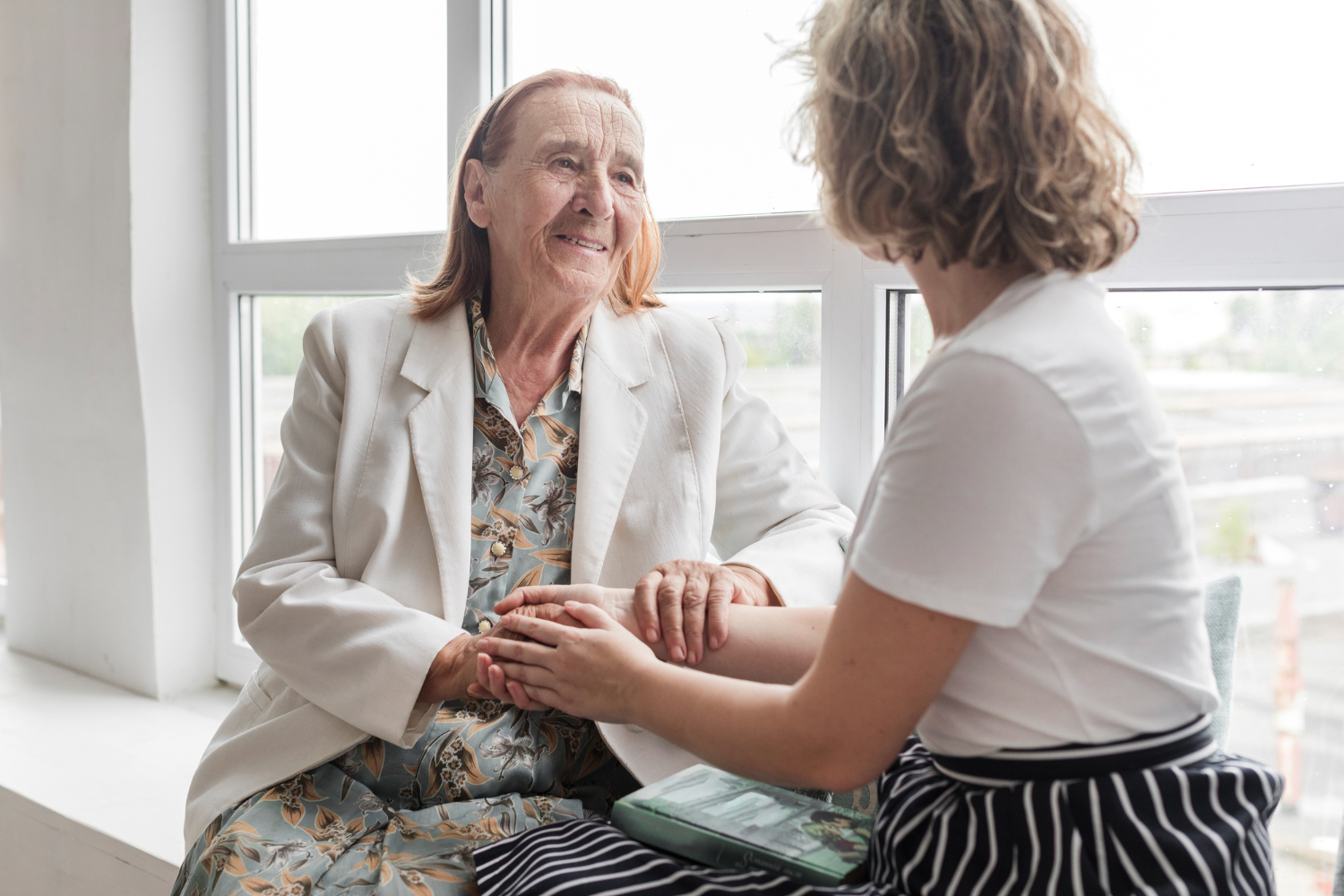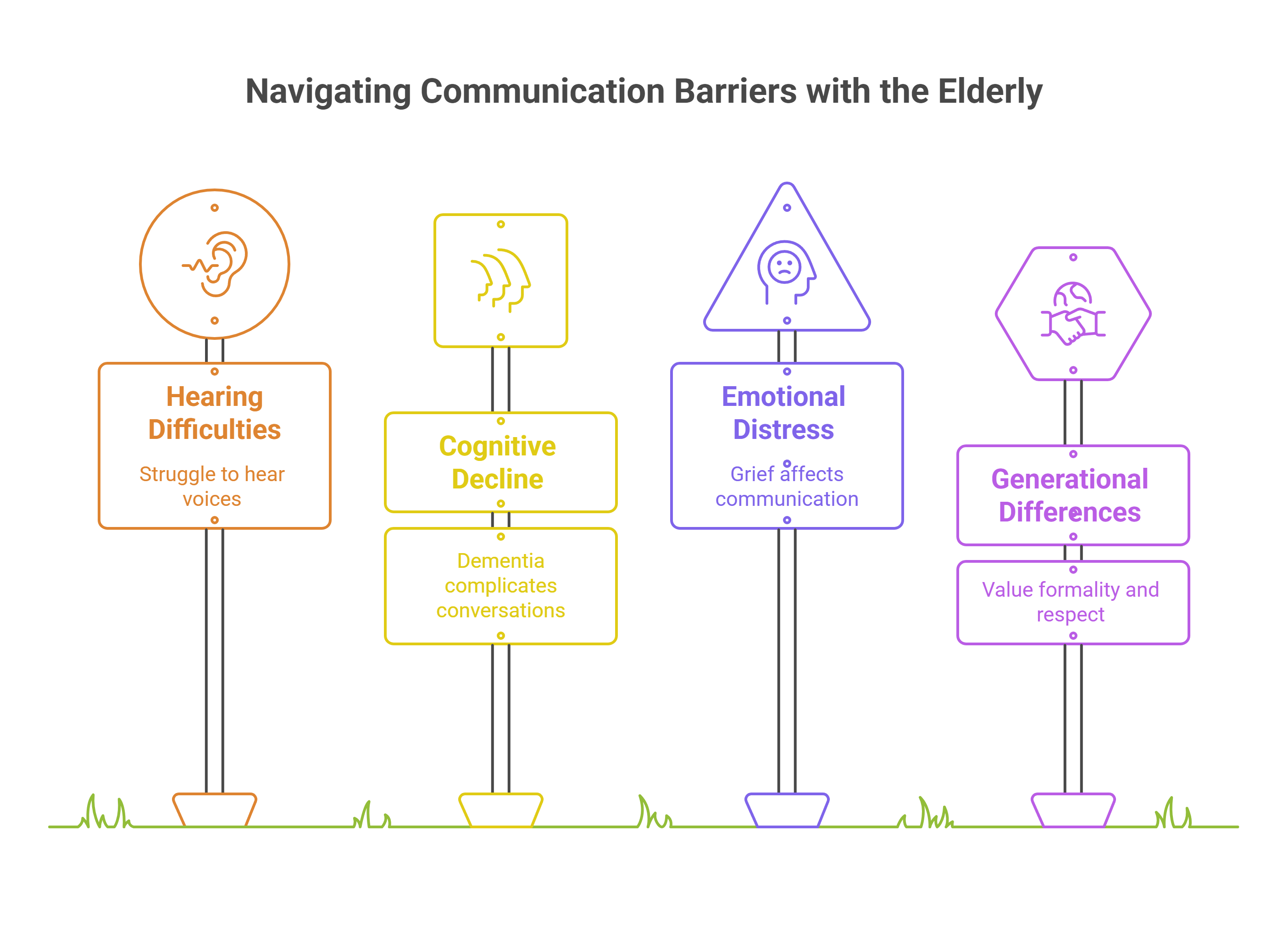Mastering Communication in Elderly Care

When you work in elderly care, the way you talk to patients can make or break their day. A simple conversation can bring comfort, clarity, and a sense of belonging. On the flip side, poor communication can lead to frustration, confusion, or even fear.
You are not just talking to patients—you are connecting with them. It is about more than just words; it is about tone, body language, and genuine care. Whether you are a caregiver, nurse, or administrator, your role in patient interaction is just as important as the medical or physical care you provide.
Understanding the Challenges of Patient Interaction
Communicating with elderly patients comes with unique challenges. Many face:
- Hearing difficulties – Some may struggle to hear soft voices or filter out background noise.
- Cognitive decline – Conditions like dementia make conversations tricky and require extra patience.
- Emotional distress – Loneliness, grief, or anxiety can affect how they respond to you.
- Cultural and generational differences – Older generations often value formality and respect in communication.
Recognizing these challenges helps you adjust your approach, making conversations more meaningful and effective.

Keys to Effective Communication in Elderly Care
Speak Clearly and at a Comfortable Pace
Many elderly patients process information more slowly than younger adults. Speaking too quickly or using complex language can cause confusion.
- Use simple and familiar words.
- Pause between sentences to give them time to understand.
- Do not assume they cannot hear you—raising your voice too much can come across as rude.
Use Non-Verbal Cues
Words are only one part of communication. Body language, facial expressions, and gestures play a big role in making patients feel comfortable.
- Maintain eye contact to show that you are engaged.
- Use gentle touches on the shoulder or hand if appropriate.
- Nod and smile to reassure them that you are listening.
Listen With Patience and Empathy
Elderly patients often have stories to share, and they may repeat themselves. Instead of rushing the conversation, let them speak freely.
- Show that you are interested by asking follow-up questions.
- Avoid interrupting, even if they take longer to respond.
- Validate their feelings with responses like, “That must have been difficult” or “I understand why you feel that way.”
Building Trust Through Patient Engagement
Trust is not automatic—it is built over time through kindness, respect, and consistency. When patients trust you, they are more likely to open up, follow care instructions, and feel secure in your presence.
Address Them With Respect
Some elderly patients prefer formal greetings, such as “Mr. Johnson” or “Mrs. Smith.” Others may be fine with first names, but it is always best to ask what they prefer.
Include Them in Conversations
Imagine being talked about rather than to. That is how some elderly patients feel when caregivers discuss their health without including them.
- Speak directly to the patient, even when family members are present.
- Encourage them to share their thoughts and make choices when possible.
- Do not assume they cannot understand or participate in decisions.
Use Humor to Lighten the Mood
Laughter is one of the best ways to connect with someone. A lighthearted joke or playful remark can lift a patient’s spirits and make interactions more enjoyable.
- Keep humor gentle and appropriate.
- Pay attention to their reaction—some may not appreciate jokes.
- Even a simple, “Well, you are looking sharp today!” can brighten their mood.
Empathetic Care: More Than Just Words
Recognizing Emotional Needs
Many elderly patients experience loneliness, loss, and uncertainty about the future. Small acts of kindness can make a big difference.
- If they seem down, ask about their favorite memories or hobbies.
- If they are anxious, offer reassurance and comfort.
- Show that you care by remembering little details about their life.
Respecting Personal Space and Dignity
Some patients may feel uncomfortable with physical assistance or close contact. Always:
- Ask before touching or assisting them.
- Explain what you are doing before you do it.
- Respect their need for privacy—knock before entering their room.
Communicating With Patients Who Have Dementia
Dementia affects memory, understanding, and language skills. Communicating with patients who have dementia requires extra patience and adaptation.
Keep It Simple
- Use short sentences and direct language.
- Avoid asking open-ended questions—instead of, “What would you like to eat?”, try “Would you like soup or salad?”
- Repeat key points gently without frustration.
Maintain a Calm and Reassuring Tone
Patients with dementia may feel confused or agitated. Your tone can either calm or upset them further.
- Speak slowly and warmly.
- If they get upset, do not argue—redirect their attention to something pleasant.
- Offer comfort through a gentle touch or soothing words.
Be Patient With Memory Loss
You may hear the same story five times in one conversation. Instead of correcting them, respond as if it is the first time.
- Saying, “You already told me that,” may make them feel embarrassed.
- Instead, respond with enthusiasm and curiosity each time.
How HR and Administrators Can Support Better Communication
As a company leader, you set the tone for how staff interact with patients. Encouraging effective communication should be a key part of staff training and daily operations.
Provide Ongoing Training
Offer workshops or role-playing exercises to help caregivers improve their communication skills.
- Teach them how to adjust their speech for different patients.
- Show the importance of non-verbal communication.
- Educate them on handling difficult conversations with empathy.
.png)
Encourage a Culture of Respect
A workplace where kindness and respect are valued will naturally lead to better patient interactions.
- Recognize and reward staff who demonstrate strong communication skills.
- Encourage open discussions about challenges and solutions.
- Remind caregivers that their words and tone matter just as much as their actions.
Final Thoughts
Mastering patient interaction in elderly care is not just about talking—it is about truly connecting. By speaking clearly, listening with patience, and showing empathy, you can build trust and improve the overall care experience.
Your words hold power. They can comfort, reassure, and brighten a patient’s day. Whether you are a caregiver or an administrator, kind and thoughtful communication should always be at the heart of elderly care.